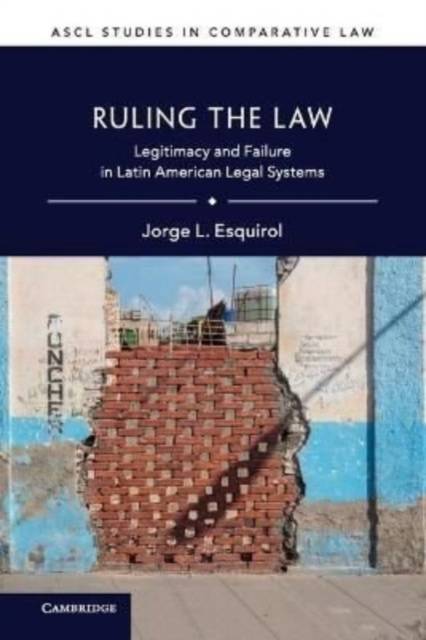
- Afhalen na 1 uur in een winkel met voorraad
- Gratis thuislevering in België vanaf € 30
- Ruim aanbod met 7 miljoen producten
- Afhalen na 1 uur in een winkel met voorraad
- Gratis thuislevering in België vanaf € 30
- Ruim aanbod met 7 miljoen producten
Zoeken
€ 50,45
+ 100 punten
Uitvoering
Omschrijving
The North-South global divide is as much about perception and prejudice as it is about economic disparities. Latin America is no less ruled by hegemonic misrepresentations of its national legal systems. The European image of its laws mostly upholds legal legitimacy and international comity. By contrast, diagnoses of excessive legal formalism, an extraordinary gap between law and action, inappropriate European transplants, elite control, pervasive inefficiencies, and massive corruption call for wholesale law reform. Misrepresented to the level of becoming fictions, these ideas nevertheless have profound influence on US foreign policy, international agency programs, private disputes, and academic research. Jorge L. Esquirol identifies their materialization in global governance - mostly undermining Latin American states in legal geopolitics - and their deployment by private parties in transnational litigation and international arbitration. Bringing unrelenting legal realism to comparative law, this study explores new questions in international relations, focusing on the power dynamics among national legal systems.
Specificaties
Betrokkenen
- Auteur(s):
- Uitgeverij:
Inhoud
- Aantal bladzijden:
- 299
- Taal:
- Engels
- Reeks:
Eigenschappen
- Productcode (EAN):
- 9781316630921
- Verschijningsdatum:
- 19/05/2022
- Uitvoering:
- Paperback
- Formaat:
- Trade paperback (VS)
- Afmetingen:
- 152 mm x 229 mm
- Gewicht:
- 403 g

Alleen bij Standaard Boekhandel
+ 100 punten op je klantenkaart van Standaard Boekhandel
Beoordelingen
We publiceren alleen reviews die voldoen aan de voorwaarden voor reviews. Bekijk onze voorwaarden voor reviews.











